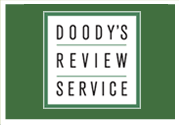Doody: Regarding usage reports, is COUNTER still state of the art?
Barbara Dunham (BD): COUNTER 4 is what we like to see; most vendors are not yet compliant with COUNTER 4.
Beth Lewis (BL): Yes. SUSHI is a program that helps pull similar COUNTER data together in one report.
Bryan Stack (BS): Yes; COUNTER recently improved the arrangement for their standard reports. Uniform structure makes it easy to compile statistics from multiple journals from the same publisher.
Marian Simonson (MS): Yes.
Doody: Do you expect the publisher to push reports to you? If so, with what periodicity? Or do you prefer to have access to an admin site where you can query and download usage statistics?
BL: I prefer sites where I have administrative access to them. I typically go check usage about twice a year. I need usage statistics…how many are using a product, what parts are they using.
BS: When COUNTER is combined with SUSHI, it allows for automatic transfer of publisher’s reports from the platform to the licensing institution. SUSHI is a standardized structure for establishing an automatic collection of reports from a given publisher.
MS: We want usage reports in an easy way that are understandable, and COUNTER does it. I look for reports twice a year. I don’t want publishers to push reports to me, but I like getting alerts that updated usage info is now available. McGraw’s Access platforms are not COUNTER-compliant, but that’s not a deal breaker.
BD: OSU uses Serials Solutions (a ProQuest service) to try to gather statistics for them. Very difficult to control when and how to get the metrics we are interested in.
Doody: If you had a magic wand, what would be the ideal site-licensing model regarding access, pricing, and terms?
BS: Here are my ideal terms:
- Jurisdiction clause is silent or local.
- Mobile access on all devices and platforms.
- Liberal definition of additional locations.
- If FTE counts are basis of pricing, specify who should be counted without ambiguity.
- Allow for direct electronic ILL.
- Cost percentage increase caps for a multiyear agreement, with clause they can cancel for dire budgetary reasons.
- 30-day (not 60- or 90-day) cancellation notice. Pricing as transparent as possible.
- IP access.
- Multiyear discount, upfront discounts, and caps on increases.
- Strongly prefer perpetual access for journals, but if the savings afforded by a package with leased access is great enough, for many titles that can be acceptable.
- For individual ebooks, with ever changing editions, we prefer perpetual access if the cost is not too high, but leased access is acceptable in most cases, especially if it is less expensive over time than buying successive editions. Offering both options with an unambiguous price schedule would be ideal.
MS: An ideal site license looks like this:
- Separate pricing for hospitals and health systems.
- IP access on and off campus.
- A three-year license with annual increases of 7% or less.
- A multiyear contract can be cancelled for dire budgetary reasons.
- Allows self-management of IP addresses.
- Provides easy to access support email and phone number.
BD: The ideal license agreement will have the following attributes:
- Reasonable price.
- Flexibility in negotiating price.
- Prefer an ownership model vs. a subscription model.
- If “owned,” clearly define the access fees that accompany ownership.
BL: Here are my desired terms:
- A constant, unchanging URL.
- No big annual price increases.
- Infrequent changes to the interface.
- Easy administration of renewals.
- Easy access to administrative site and reports.
Doody: What didn’t we ask you that you assumed we would?
MS: Some publishers have a policy that if we reach a minimum threshold in spending, they reward us by either opening access to all sites/locations or to all journals in their collection. This is an attractive element for us.
BD: Make sure the ILL rules and restrictions are clearly stated in the agreement. Can we data mine from the databases we license? Breach clauses have to give the institution the opportunity and time to resolve the issue before a breach is invoked.
BL: A resource is only as valuable as its content. A nursing database from ProQuest was wonderful until they started diluting the content, so I had to cancel.
BS: Don’t overlook the importance of the Shared Electronic Resource Understanding (SERU), http://www.niso.org/workrooms/seru/, a NISO (Nat’l Information Standards Organization) recommended practice. These are standards developed by a group of librarians and publishers. SERU is a set of standard terms for licensing electronic resources. By signing as a member, publishers and librarians can bypass a formal license, greatly simplifying things from a legal point of view and reducing/eliminating legal expense.
Doody: What is the final comment you want to make about the best practices in site license agreements?
BL: Provide killer content, make it easy administratively, give us publicity material to promote it, have an easy renewal model, and implement very low price increases annually.
BS: I want agreements that are simple and clear on terms, pricing, and determining target populations for tiered pricing schemes. I don’t want 10 pages of fine print that don’t amount to anything.
MS: Keep it simple. Publishers will benefit if they follow guidelines established by SERU. It takes a contract a minimum of 6 weeks to 3 months to make it through our legal department, and that’s one where there are no changes.
Editor’s Epilogue: This is the last of three installments in this interview concerning the best practices with site licenses. The two previous installments are available from the archive in the right column.
